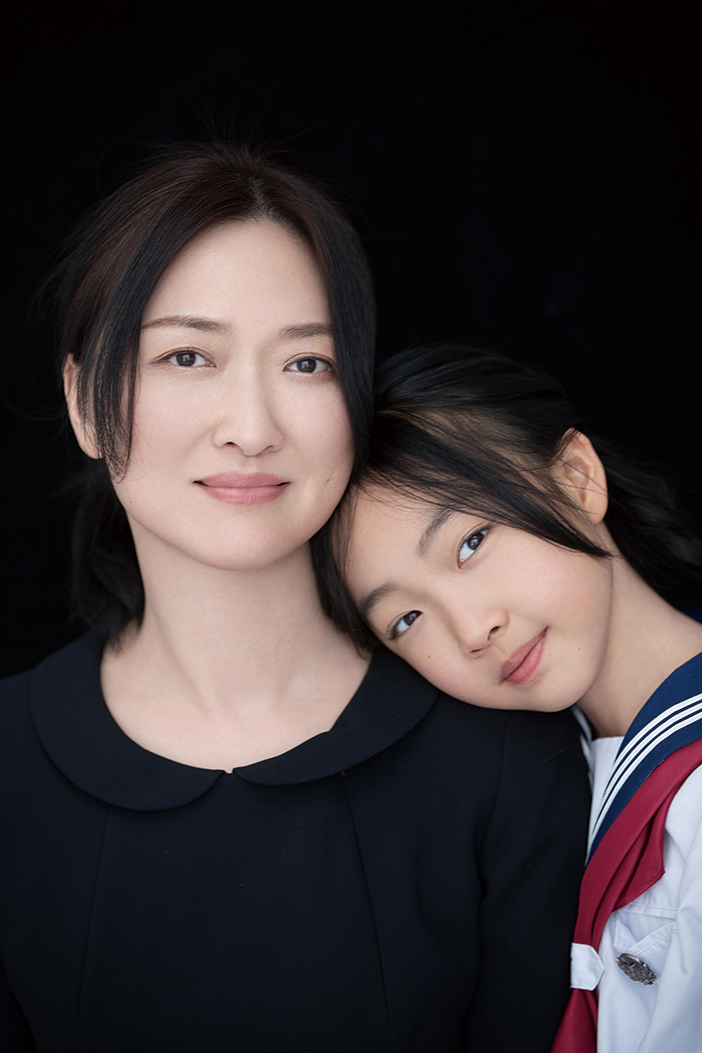Alessia Chizzoniti (in featured photo with her family) is a busy woman. She is not only the founder and director of Blossom Montessori Elementary Programme, but also a doula and purveyor of baby slings under her Baobaole and Beyond brand. With the help of architect husband Luigi Scorza, she still finds time to bring up three lively children: Giosue, aged 7, Zeno, who’s 5, and 3-year-old Corinna.
What considerations drove your decision to move to a different country?
We always wanted to move abroad, although Asia was not in the picture at all! Then, chances arose thanks to my husband’s job.
How old were your children when you moved? Where do they consider “home”?
Our children were all born here. Beijing is their home. My eldest child still remembers the old apartment we used to live in! When asked, number one said, “home is where I can play piano, relax and do my things.” Number two gave our whole address… Number three gave our address, but spelled it wrong!
Are your children studying at a local or an international school? What factors did you take into account when making this decision?
They are all at Montessori schools. Montessori education is really important to us (and the only viable path for us, me being a Montessori grown-up and us all a Montessori family really). For kindergarten, we based our decision on the children’s happiness, the teachers’ preparation and attitude, and the family feeling. For the Elementary… that’s the best school in town! Hahaha!
Which languages do your children speak? What’s their first language, and what’s their ability level at other languages?
They speak Italian, English, and Chinese. Their Italian and English are at native speaker level. Chinese is a second language, though our little daughter speaks Chinese fluently for her age.
French and Spanish are other languages they are exposed to, thanks to our many friends, but definitely not able to speak. They understand enough, though, for the sake of having fun… the power of play!
What are the pressures on a “third culture kid”?
In Asia, and especially in China I feel, they will always look different and be perceived as 棍벌훙. I remember once my first child had a debate with a taxi driver, who asked him where he was from. My son didn’t understand at first, then he replied he – of course – is from Beijing. Needless to say, the taxi driver was expecting a different answer! The debate became a bit heated (with a lot of frustration from my child’s side), then at last my child said, “Whatever your passport says, mom, that’s because of you. Not because of me! I’m from here!”
And what are the advantages for them?
Talking about third culture children in Beijing, definitely being open-minded and exposed to many different cultures in one place is an advantage. With this, comes being tolerant from within; being able to accept different points of view without seeing a problem in it per se. And not having any imposed taboos, or don’ts.
When do you plan on returning to your home country? How do your children feel about it?
We do not plan to return to our (mom and dad’s) home country. My children consider mom and dad’s home country as a cool summer vacation where they go visit grandparents and play on the beach.
Have your children ever talked about where they expect to live as adults? Has the experience of being a “third culture kid” changed them, or the way they see the world?
They are definitely used to traveling a lot, and have a “wider” vision of the world. They had their first flight when they were only a few days old, and we’ve never stopped. We all love traveling.
After our road-trip along the East Coast of Australia in February 2018, our second child decided he wants to live in Australia, more specifically on a treehouse on the beach. Sounds like he has a plan! Our eldest son said he won’t live here, but he’s not sure where. He said it doesn’t really matter because he will be a famous musician and I’ll get to see him anyway. Our daughter said she will live somewhere on the beach, possibly in a sandcastle.

Wang Kexin is a freelancer who founded a cultural company in Beijing. When she became pregnant in 2009, she moved to Tokyo where her husband Son had been invited by the Japanese government to teach tai chi over 30 years ago. Their daughter Yoyo, 9, was born in Tokyo and is studying at an international elementary school in Japan, in the third grade.
What considerations drove your decision to move to a different country?
Because my husband is working in Japan, so I moved there too in order to live together with my family.
How old was your daughter when you moved? Where does she consider “home”?
Yoyo was born in Japan and is now 9 years old. For her, it is natural to think that her family is in Japan. I also tell her that besides our “small family” we also have a “big family” in Beijing, where her grandparents, uncle, aunt, brother, and sister live. And I try my best to take her back to China and to the “big family” atmosphere.
Is your daughter studying at a local or an international school? What factors did you take into account when making this decision?
My child attends an international school in Japan for several reasons: the classes are taught in English (Japanese people’s pronunciation of English is not so good); and besides English, she learns French for an hour a day. So she can master more languages in a natural way.
Which languages does your daughter speak? What’s her first language, and what’s her ability level at other languages?
I only speak Chinese to my child, ever since she was born. When she attended kindergarten, she started to study Japanese. Because of her living environment, she thinks Japanese is the easiest as if it has already become her mother language. When I noticed that, I made it mandatory to speak only Chinese at home. Including English and French which she learned at school, she has mastered many languages. I have a lot of friends around worrying that their child might be poor at Japanese, and stressing the importance of speaking Japanese; that’s why after primary school their children cannot even speak basic Chinese. So I am more convinced that it is better for children to insist on speaking Chinese at home.
What are the pressures on a “third culture kid”?
I don’t think my daughter is under much pressure. I think she possesses a strong ability of adaptation, stronger than adults. Also, I don’t want to underestimate her capacity. Personally, I don’t 100 percent agree with “the third culture”. In Japan, people stress things like “third culture”, “foreign culture” … from which we can feel the Chinese are different. I think this deliberate distinction is the source of pressure, this kind of emphasis makes children feel unable to unite with others, or even become isolated. I appreciate more the concept of the “global village”. With the progress of this era, international and regional exchanges have become easier, taking place more and more smoothly. Although cultural differences do exist, the shared references and merging of different cultures will be greater and greater. For example, Chinese culture has aroused the world’s interest in the fields of fashion, film, and literature.
And what are the advantages for them?
Language, the ability of adaptation, and chances to get in touch with different cultures and customs.
When do you plan on returning to your home country? How does your daughter feel about it?
I don’t have specific plans yet. Now my daughter is still young, and needs my company. I will be in Japan at least until she attends middle school. Maybe when she is older, she will have her own plans. Then I will respect her choice and then I will have more freedom and space.
Has your daughter ever talked about where she expects to live as an adult? Has the experience of being a “third culture kid” changed them, or the way they see the world?
She hasn’t mentioned an ideal place to live, but she likes to travel around. At the moment, she is studying French, so she wants to visit France. We also wish to live in an English-speaking country for a while, or let her to study abroad. Everything is possible. Everything is uncertain. I believe different experience makes different people, so the way people look at the world must be different

This article appeared in the beijingkids May 2019 Identity issue.
Photos: Courtesy of Alessia Chizzoniti and Wang




